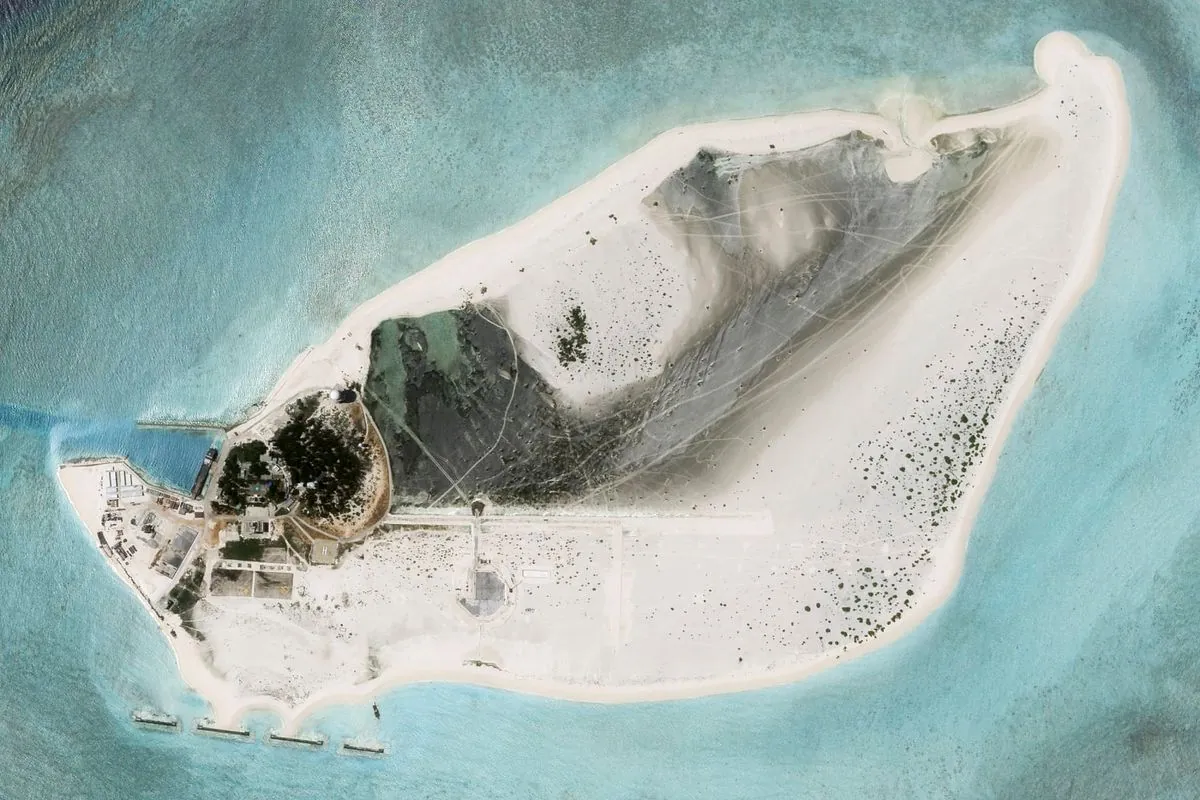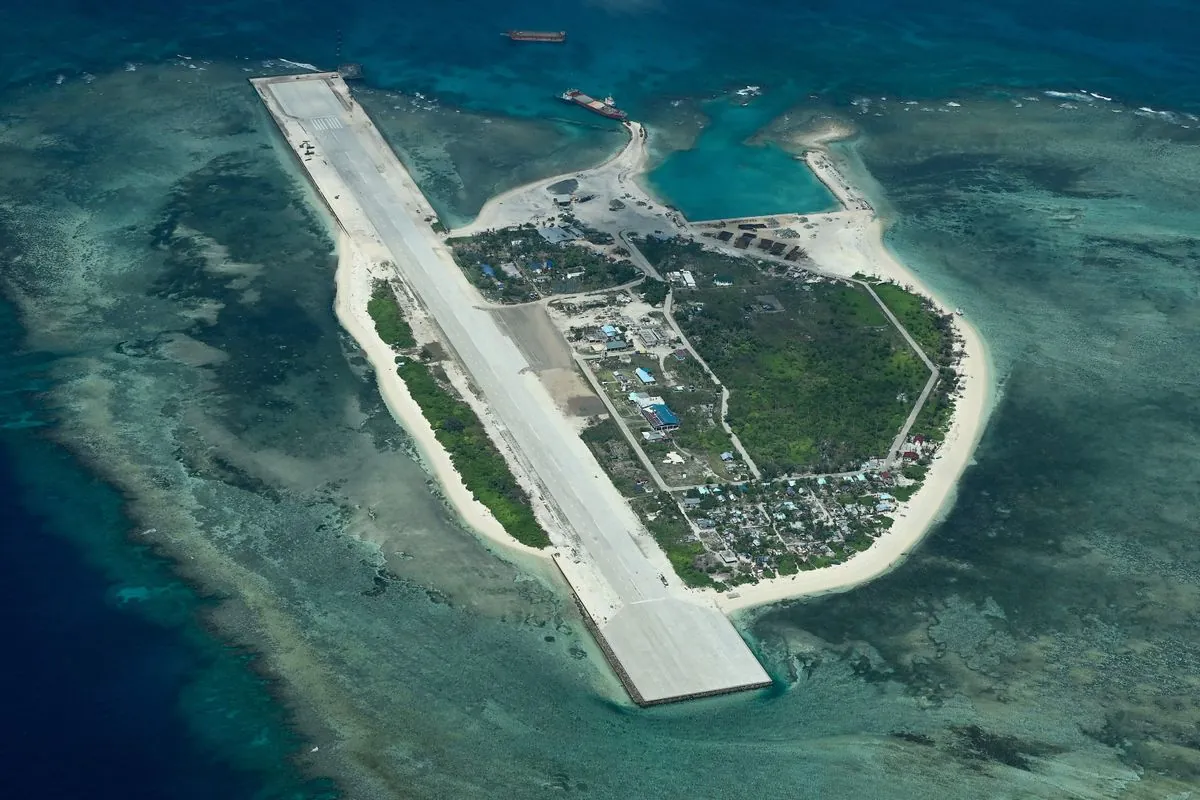China Accuses Philippines of Potential Provocations in South China Sea
China's state media warns of Philippine "trouble" in the South China Sea, citing military expansion on Thitu Island. Recent maritime clashes and U.S. support for Manila escalate regional tensions.

China's state-backed Global Times has raised concerns about potential "provocative intrusions" by the Philippines in the South China Sea. The report, published on August 23, 2024, focuses on the expansion of military infrastructure on Thitu Island, which China refers to as Zhongye Dao.
The South China Sea, covering approximately 3.5 million square kilometers, has been a hotspot of territorial disputes for years. China claims sovereignty over nearly the entire area, deploying coast guard vessels to protect what it considers its territory. However, this claim was rejected by the Permanent Court of Arbitration in The Hague in 2016, stating it has no basis under international law.
Philippines, along with Taiwan, Malaysia, Indonesia, Vietnam, and Brunei, contest China's claims. The region is of significant strategic importance, with an estimated one-third of global shipping passing through its waters. Moreover, the South China Sea is believed to hold substantial natural resources, including approximately 11 billion barrels of oil and 190 trillion cubic feet of natural gas.

The Philippines currently occupies nearly 10 locations in the South China Sea, including Thitu Island, also known as Pag-asa Island, which is the second largest of the Spratly Islands. In January 2024, Romeo Brawner, the Philippine military chief, announced plans to develop islands in the area to make them more habitable for troops.
Recent incidents have further escalated tensions in the region. On August 19, 2024, China and the Philippines accused each other of dangerous maneuvers near Sabina Shoal, part of the disputed Spratly Islands. The Philippines reported that two of its coast guard vessels encountered "unlawful and aggressive maneuvers" from Chinese vessels while en route to supply Filipino personnel.
"The U.S. stands with the Philippines in condemning the China Coast Guard's dangerous manoeuvres"
The United States has expressed support for the Philippines, with Ambassador MaryKay Carlson condemning China's actions. This aligns with the U.S. Freedom of Navigation Operations (FONOPs) in the South China Sea, which began in 2015.
The situation remains complex, with ongoing efforts by the Association of Southeast Asian Nations (ASEAN) to establish a Code of Conduct for the South China Sea since 2002. As tensions persist, the region's rich biodiversity, including over 3,000 fish species, faces potential risks from increased military activities and resource exploitation.


































